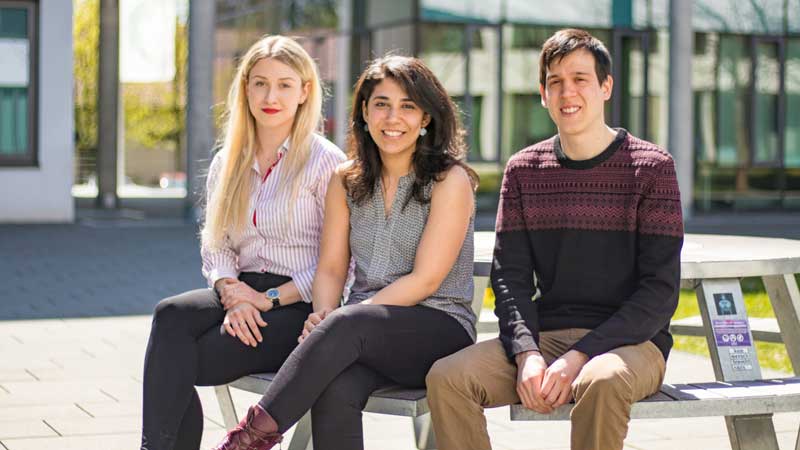Four of the nominated DIGS-BB PhD students received the DIGS-BB Fellow Award 2019: Nermeen Elagroudy, Felix Lansing, Camilo Riquelme, and Marta Zuzic. The award honours outstanding PhD students of the program and includes a price money of €2,000. It aims to help their research work, development of research skills, and to strengthen their research network. The allowance can be used to cover project consumables, attendance to workshops and conferences, as well as research visits to collaborators’ labs.
The students have applied for the award with the current state of their thesis work which they presented to the DIGS-BB Steering Committee in writing and in a talk. Detailed information on that work can be found below.
Nermeen Elagroudy
“The citrate transporter INDY “I’m Not Dead Yet” which is involved in lipid and glucose homeostasis and energy regulation has been recently proposed to be an attractive target for metabolic diseases. Could INDY be a new therapeutic drug target for insulin resistance and NAFLD? Answering this question is the main aim of my PhD project. Receiving the DIGS-BB fellow award strongly motivates me to continue pursuing my research question and strive for further contribution in the field of hepatology and metabolic research.”
Felix Lansing
“In my PhD thesis I am developing new molecular tools to specifically modify the human genome. In order to create these genome engineering tools with new specificity to a human genomic target sequence, I am using molecular directed evolution. This method allows me to 'breed' enzymes that are potentially applicable in the context of genetic alterations that are the cause of monogenetic diseases.
In more detail, I am trying to evolve an enzyme that could be used to correct a mutation in the Factor VIII gene which causes Hemophilia A. I hope that this strategy will lead to a new set of genome engineering tools with a huge potential in biomedical applications.”
Camilo Riquelme
“During Axolotl limb regeneration, an important requirement is the proper integration of the regenerating tissue into the mature limb. In this context, the skeleton undergoes a substantial degradation during the early steps of regeneration that is necessary for a complete skeletal integration. My research focuses in unravelling the cellular and molecular spatiotemporal dynamics of this amazing process.”
Marta Zuzic
“Photoreceptors are light-sensing neurons in our eyes. Unfortunately, in some diseases these cells degenerate leaving patients blind. A possible treatment is to transplant in vitro-derived photoreceptors. I aim at producing these cells from human induced pluripotent stem cells by forcing the expression of specific transcription factors. So far, I identified a combination of three transcription factors that induce cone photoreceptor differentiation. Presently, we intend to undertake transplantation studies in animal models.”
